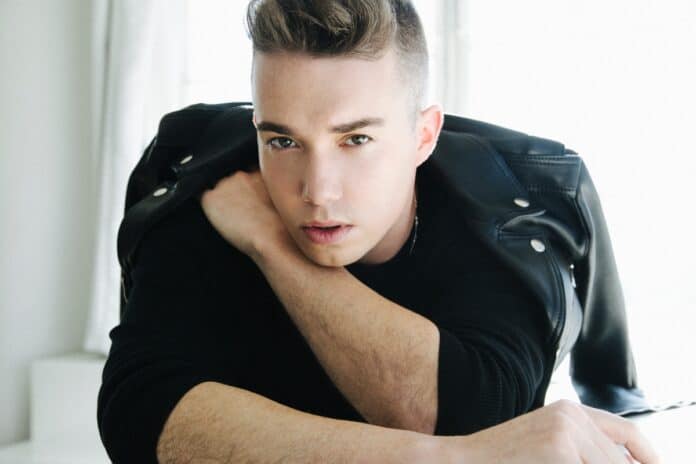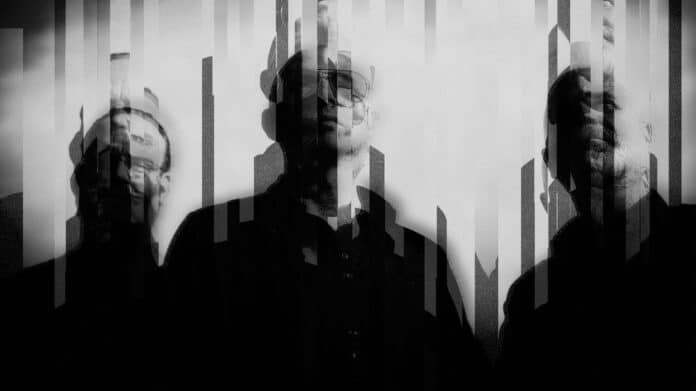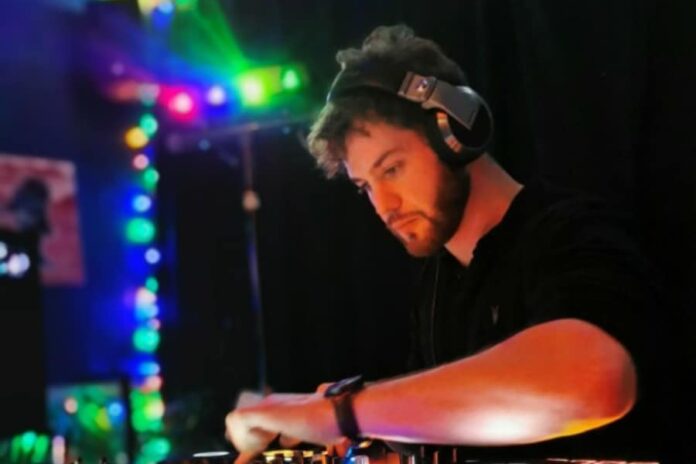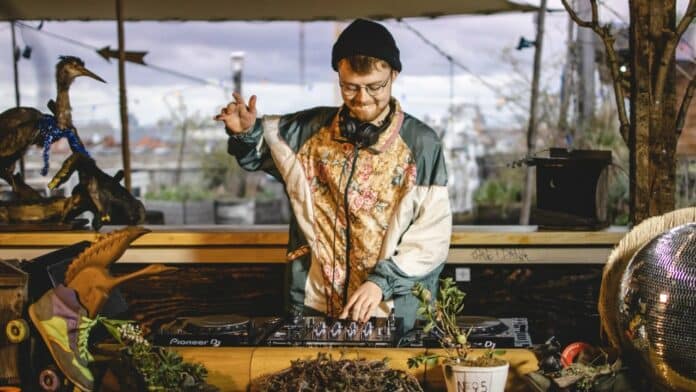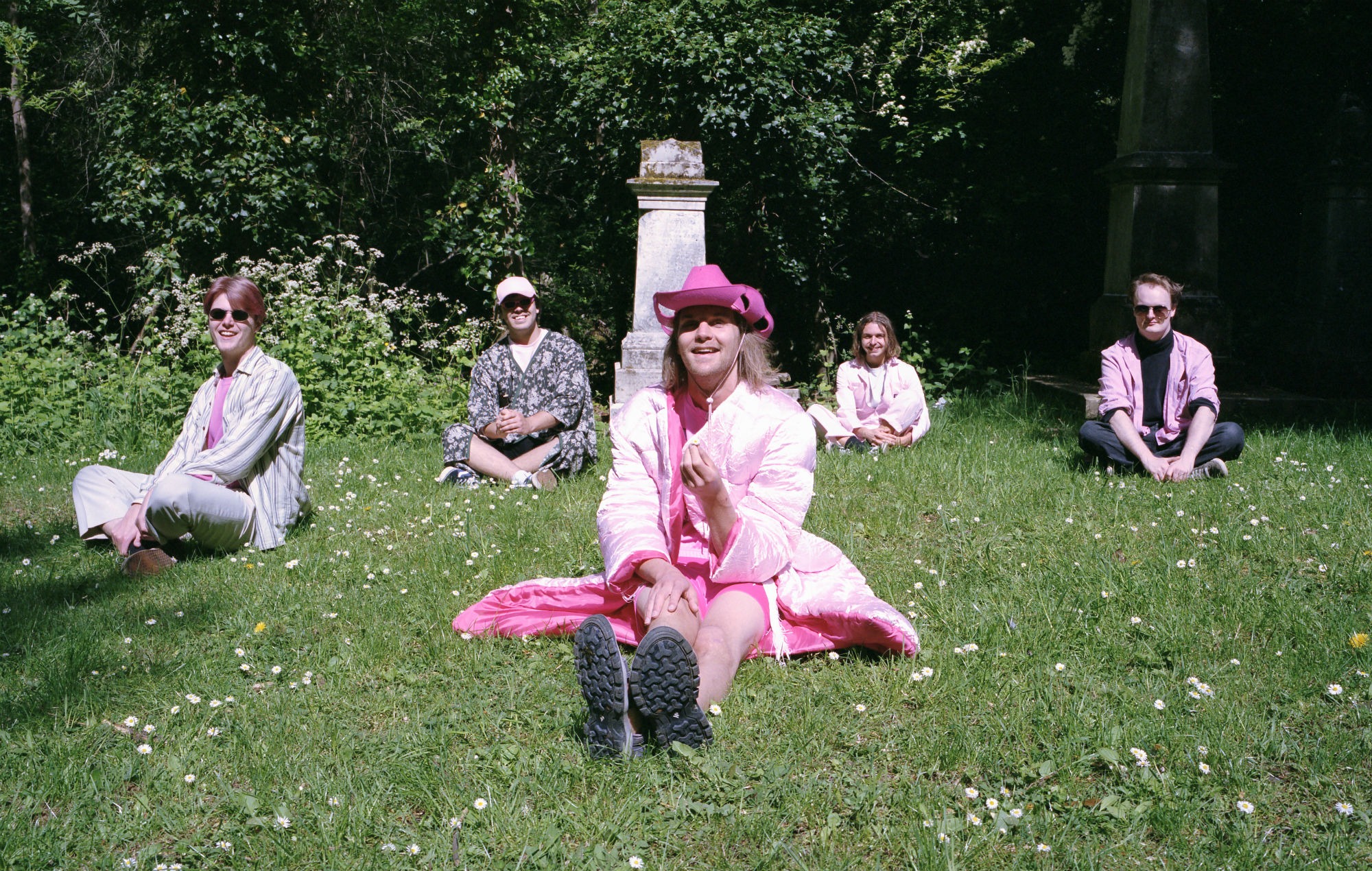
Tiña’s Joshua Loftin on the importance of ‘Positive Mental Health Music’
As the first band to have a full-length release on London’s hottest label Speedy Wunderground (the Dan Carey-run imprint known for bringing you singles from the likes of Squid, Black Midi, Black Country, New Road), Tiña could be about to make history with their debut album ‘Positive Mental Health Music’. Despite this landmark moment and its loaded title, frontman Joshua Loftin is keen to downplay the potentially profound nature of the LP.
“I wouldn’t call it a concept record,” he tells NME. “We didn’t even come up with the title. A friend came to a show at the Five Bells in Newcross, and afterwards he was like, ‘I like it, it’s like positive mental health music’. I thought it was cool and it just stuck. The mental health thing became a bit more of a focus for me because I had a breakdown about two years ago and that’s where the songs came from.”
NME caught up with Loftin to find out how turning some of the darkest moments of his life into psychedelic cowboy rock proved therapeutic, the art of having a laugh, and the advice he’d give to others.
Hello Joshua. What can you tell us about life shaped the themes on ‘Positive Mental Health Music’?
Joshua: “I was working through my breakdown and investigating it. I found ways of surviving and moving through something that was incredibly dark and heavy that brings your life to a standstill. You become quite introspective in that. I couldn’t bullshit myself as I could before. You know, like ‘Oh, maybe I’m not feeling so could but I can stay out another night’. But when I had a breakdown my sensitivity levels were really high. Just through having that level of honesty with myself, it culminated as the songs were coming out.”
Were there any key songs in particular where you noticed that?
“There’s a song called ‘New Boy’ on the album which is essentially about feeling like a loser after breaking up with a girl. It’s a mix of the day to day uncertainties of relationship stuff, then an added level of introspection about my experience and why I’m feeling like this. It’s deeper on my behalf in terms of looking at why these things are going on and what the reality of it is. My brain and my body were doing something extra on top of it, which makes the experience more extreme for me.”
How would you say that having music as an outlet have helped in your recovery?
“I’m still overcoming the breakdown. It’s like slowly climbing out of a whole. It’s been like trial and error, because initially you don’t have the tools. You’re just trying to work out what helps and what works. A huge key part of it is about listening to yourself. I read The Power Of Now by Eckhart Tolle and the thing I took away from it was not to ignore what comes up through you. Even if it’s something you really don’t want to hear or that might not be true, you can’t reject it. You have to let that thing come through you. Listening to myself has become more important to me.”
What else have you learned that helps?
“I started doing breathing exercises, taking cold showers, and practicing meditation. I took antidepressants too, which didn’t really agree with me. It’s all a process of elimination, but also being humble. I have to be more vulnerable with people in scenarios to admit that things aren’t going well. It’s impossible to fake. Music and art in general were important, because by writing something it’s almost like you’re owning your experience a little bit. With our single ‘Dip’ for instance, that’s a reflection of some of the darkest times that I was going through. Through writing that song, the catharsis that I received personally through being able to sing that stuff alone in my room almost makes it feel like there’s some beauty in the pain. This reflection becomes yours through the writing process.”
Has reliving these things through music helped you understand them more?
“I’m faced with thEse things all the time anyway and I’m not a stranger to them. Hearing it and singing it repetitively over and over again acknowledges them. It’s almost like you’re changing them by singing them too. By singing lines about anxiety or feeling incredibly lonely or being desperate for sex, there’s a boldness to that presentation of a subject. It’s essentially saying, ‘I don’t have my shit together and I’m really lonely and horny’. It’s not the sort of thing you’d want to shout at strangers, but maybe there’s something about how I’m strengthening myself through the repetition of saying it at live shows and playing it on the radio. It’s probably a help to my growth through having that outlet.”
So like therapy, it’s like putting everything under the microscope?
“I did therapy for two years and I’ve just started it again. There is that part of you that wants to be made well or feel like you’re getting away from your pain as quickly as you can. That’s only natural. I went to do CBT and thought that in a few months I’d be alright, but that’s not how it works. If someone was to tell you at the start what the process would be, it’s almost like the opposite of what you think would work. What you do is examine these things by opening them up and going deeper into them. You know, ‘We’re just going to defrost all of your demons and get a proper look at them’!”
Do you think society is getting better at that?
“That’s not the way that society is designed. We don’t live in an accepting culture that has room for the slow, reflective moments of uncertainty and awkwardness. Therapy is just about making time and sitting with your problems and your feelings. You allow them a space in your life and integrate them into you, you go deeper and you learn a lot about yourself. I was having therapy during part of the writing of the record, and for the rest I was in my reflective breakdown space.”
How did that shape the music?
“In allowing yourself to sit with your feelings, you can be more honest with yourself. With more honesty, you can write songs which are more true. Because of my nature and the practice of my art as a filmmaker and writing poetry as well, there are surreal elements to the writing. That’s the marriage of the experience and the art to tell the story of the feeling – you can then play it with humour, surreal imagery and wackiness.”
You’ve described the album as “sincere but not serious” – has that helped to normalise these things?
“Humour and darkness have a companionship of some kind. People say that the truth is funny. Being sincere is important to me, but you can only talk about death so many times before you start to take the piss out of it and play with it a bit. If someone’s talking about something like mental health, then someone cracks a joke that’s sensitive but somehow it binds the room together in laughter, you warm towards the experience more. It could also be quite an English thing as well, and quite in keeping with our sense of humour.”
While your experience is profound to you, this approach must help share the idea that others are going through it too?
“I know. How many people have thought about killing themselves or had really extreme anxiety or felt so heartbroken that they didn’t know what to do? Although it feels incredibly personal and heavy for me having had those experiences, you think about how long the world has been going and how this is such a universal thing.”
Have you had many people reach out to you as a result?
“People really seem to have warmed to the music. I’ve had someone from America reach out and say that he was having a hard time but found solace in the material. From one person contacting you, you know there are X many others who haven’t contacted you but have felt the music. From a gig perspective, people just come away feeling good. When the po-faced darker bands play with a bit more exclusivity and a barrier between band and audience, whereas I feel we’re more inclusive. There’s an element of getting rid of the hierarchy. There’s not much else to it.”
It’s just about togetherness?
“It’s kind of like a ‘take it or leave it’ presentation. We’re talking about heavy shit, but also here’s a squirrel! Enjoy the song! If you were to ignore the lyrics, it’s still a catchy record with elements of pop in it. When you don’t force people into a space where they either take it seriously or don’t listen, you can give people the option and they may be more likely to get on board.
Tiña release ‘Positive Mental Health Music’ on November 6.
For help and advice on mental health:
- Help Musicians UK – Around the clock mental health support and advice for musicians
- ‘Am I depressed?‘ – Help and advice on mental health and what to do next
- YOUNG MINDS – The voice for young people’s health and wellbeing
- CALM – The Campaign Against Living Miserably for young men
- Time To Change – Let’s end mental health discrimination
- The Samaritans – Confidential support 24 hours a day

